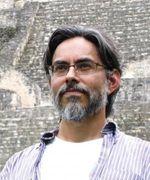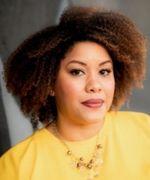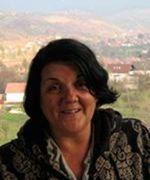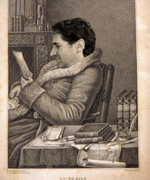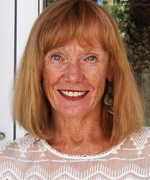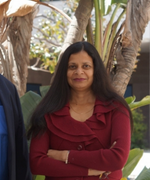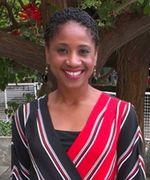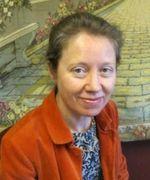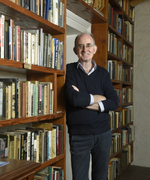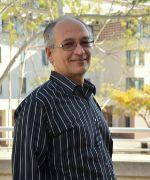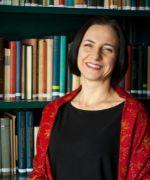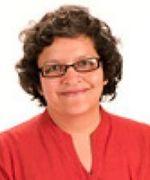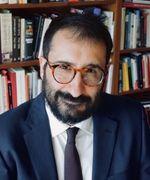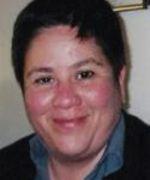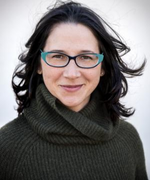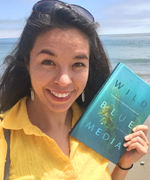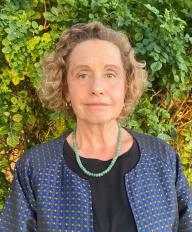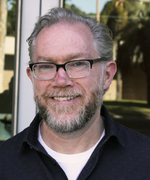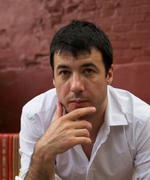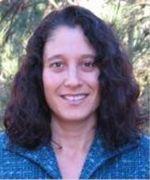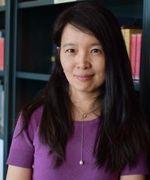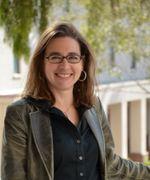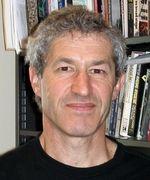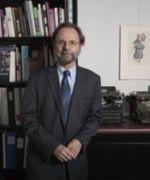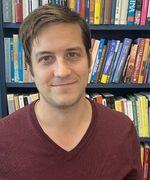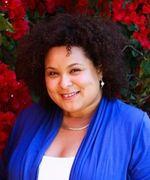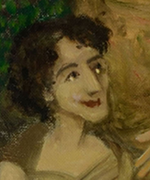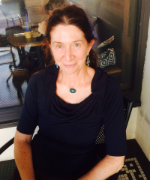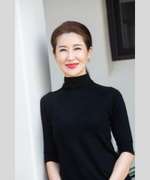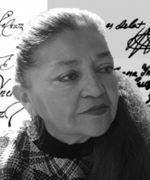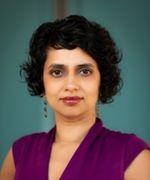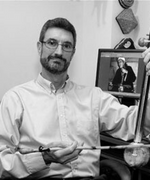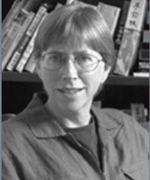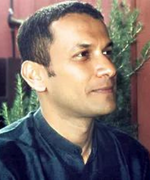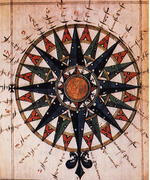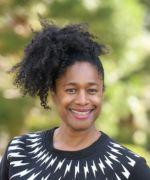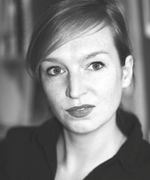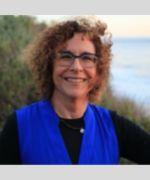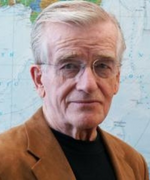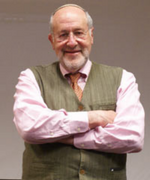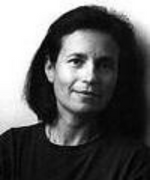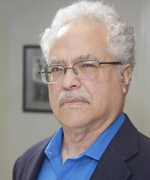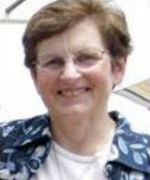People
Prof. Aldana's research interests are Maya hieroglyphic history, Mesoamerican art, experimental archaeology, science studies, culture theory. His main publications include: Tying Headbands or Venus Appearing: New translations of k'al, the Dresden Codex Venus Pages and Classic Period Royal 'Binding' Rituals (2011); The Apotheosis of Janaab’ Pakal: Science, History, and Religion at Classic Maya Palenque (2007).
Prof. Amar's research explores cultural and social texts and spaces, and retheorizes subjects of gender, nation, colonialism, risk, security, militarization and humanism/humanitarianism as they are articulated in the sites and imaginaries of megacities of the global south. His books include The Security Archipelago: ‘Human Security’ States, Sexuality Politics and the End of Neoliberalism (2011); Cairo Cosmopolitan: Politics, Culture and Urban Space in the New Globalized Middle East with Diane Singerman (2006); New Racial Missions of Policing: International Perspectives on Evolving Law-Enforcement Politics (2010); Global South to the Rescue: Emergent Humanitarian Superpowers and Transnational Rescue Industries (Routledge, 2011).
Professor Andrea’s research and teaching interests include Renaissance/early modern studies, with an emphasis on women and gender; early modern Anglo-Islamic relations and representations; and contemporary Middle Eastern women’s writing. She is the author of The Lives of Girls and Women from the Islamic World in Early Modern British Literature and Culture (University of Toronto Press, 2017) and Women and Islam in Early Modern English Literature (Cambridge University Press, 2007). Her edited books include Travel and Travail: Early Modern Women, English Drama, and the Wider World, with Patricia Akhimie (University of Nebraska Press, 2019); English Women Staging Islam, 1696–1707 (ITER, 2012); and Early Modern England and Islamic Worlds, with Linda McJannet (Palgrave Macmillan, 2011). Her articles and book chapters on contemporary women writers from Turkey, Egypt, Algeria, and Morocco appear in journals such as HAWWA: Journal of Women of the Middle East and the Islamic World and collections such as Arab Women’s Lives Retold: Exploring Identity Through Writing.
Prof. Batiste's interests include the relationships between representation, performance, identity, race, and power. Her research and teaching focus on the ways in which cultural texts, like literature, theater, performance, film, art, and bodies, act as imaginative systems that create identity, cultural values, human interactions, and possibilities of justice. Her teaching reflects this in the broad array of materials she uses to bring students to an interdisciplinary understanding of texts, theory, and history. Her book, Darkening Mirrors: Imperial Representation in Depression Era African American Performance (Duke University Press, 2011) examines the complicated ways African Americans participated in American ideologies of cultural imperialism—ideologies like expansionism and primitivism. Professor Batiste's most recent work focuses on performance, affect, and violence in millennial Los Angeles.
Silvia Bermúdez is Professor of Literature and Iberian Studies in the Department of Spanish and Portuguese at the University of California, Santa Barbara. Her current scholarship centers on Iberian feminisms, the cultural history of Spanish women in medicine, Migration and Mediterranean Studies. Her recent publications include Rocking the Boat: Migration and Race in Contemporary Spanish Music (University of Toronto Press, 2018). She is co-editor of A New History of Iberian Feminisms (University of Toronto Press, 2018) with Roberta Johnson; and Cartographies of Madrid: Contesting Urban Space at the Crossroads of the Global South and Global North (Vanderbilt University Press, 2019) with Anthony L. Geist.
Research interests: Gender studies and Feminist theory, the body, theories of subjectivity, British and European modernism, fin de siecle literature, critical and cultural theory, theories of mass culture. Her main publications include Eye on the Flesh: Fashions of Masculinity in the Early Twentieth Century (1996); Stuff Theory: Everyday Objects, Radical Materialism (2014); and various articles on masculinity, Walter Benjamin, and James Joyce. With Enda Duffy, she co-edited Joyce, Benjamin and Magical Urbanism (2011). She also translated Antonio Negri's book: Insurgencies: Constituent Power and the Modern State (1999).
Mary Bucholtz is a sociocultural linguist whose research examines the role of language in the production of identity, power, and agency, with a particular focus on race, gender, sexuality, and youth; she also examines on the politics of linguistic representation in textual and visual media and in legal settings. She is the author of White Kids: Language, Race, and Styles of Youth Identity (Cambridge UP, 2011) and the editor or coeditor of a number of volumes on language, gender, and sexuality, including Language and Woman's Place: Text and Commentaries (Oxford UP, 2004), Reinventing Identities: The Gendered Self in Discourse (Oxford UP, 1999), and Gender Articulated: Language and the Socially Constructed Self (Routledge, 1995). She is the director of the Center for California Languages and Cultures.
Professor Cabranes-Grant has a joint appointment in the Departments of Theatre and Dance, and of Spanish and Portuguese. His research interests include Spanish, Caribbean and Latin-American drama and theatre history, Intercultural Studies, “minority” theatre. His publications include Los usos de la repetición en la obra de Lope de Vega (Pliegos, 2004). Professor Cabranes-Grant is currently writing a book about the links between theories of mediation and intercultural experiences (Interscapes. Performing the Intercultural from Shakespeare to Walcott). He is also a director and a playwright whose works have been produced and stage read in Puerto Rico, Boston, and Santa Barbara.
Areas of research and teaching include religion and modern philosophy (especially German idealism, phenomenology, hermeneutics, and deconstruction); the history of Christian thought and culture (with special interest in the traditions of mystical and negative theology, as well as relations between theology and the emergence of modern science and politics); and religion, modernity, and post-modernity (with special interest in secularization, religion and politics, and the religious dimensions of technological culture). Main publications: The Indiscrete Image: Infinitude and Creation of the Human (2008); Indiscretion: Finitude and the Naming of God (1999).
Swati Chattopadhyay is an architect and architectural historian specializing in modern architecture and urbanism, and the cultural landscape of British colonialism. She is interested in the ties between colonialism and modernism, and in the spatial aspects of race, gender, and ethnicity in modern cities that are capable of enriching post-colonial and critical theory. She is the current editor of the Journal of the Society of Architectural Historians (JSAH). She is the author of Representing Calcutta: Modernity, Nationalism, and the Colonial Uncanny (Routledge, 2005; paperback 2006), and Unlearning the City: Infrastructure in a New Optical Field (Minnesota, 2012). Her current work includes a new book project, "Nature's Infrastructure," dealing with the infrastructural transformation of the Gangetic Plains between the 17th and 19th centuries.
\
Professor Clitandre (Ph.D Berkeley) was the recipient of a University of California President's Postdoctoral Fellowship. She works on the theoretical frameworks of the African Diaspora, migration and displacement as well as transnationalism, with a particular focus on Haiti and Haitian diasporic literature. Her teaching interests include diaspora studies, anticolonial literature, postcolonial Caribbean Women's literature, and NGO and Humanitarian intervention in Haiti post-earthquake. Professor Clitandre is also the founder of Haiti Soleil, a nonprofit organization that focuses on engaging youth and building community through the development of libraries in Haiti. Her book on the writings of Haitian-American writer Edwidge Danticat, the first sustained full-length interpretive literary analysis on the celebrated author, was published by The University of Virginia Press in 2018: Edwige Danticat. The Haitian Diasporic Imaginary.
Prof. Cook's central interests include Eighteenth-century British and French literature and cultural studies. She is the author of Epistolary Bodies: Gender and Genre in the Eighteenth-Century Republic of Letters (1996); and of articles on early modern scientific and poetic conventions for representing the natural world. Her current research is on early modern writing about forests and trees and on the history of environmental ethics. She co-edited Invaluable Trees: the Cultures of Nature 1660-1830, with Laura Auricchio and Guilia Pacini (SVEC, 2012).
Susan Derwin is the Director of UCSB's Interdisciplinary Humanities Center and Professor of German and Comparative Literature. For the last five years, her teaching and writing have been devoted to the issues of social reintegration confronting military veterans and to publicly-engaged humanities. She is founding director of the University of California Veterans Summer Writing Workshop and of Foundations in the Humanities, a correspondence program for incarcerated individuals operating in multiple California prisons. She is the author of The Ambivalence of Form: Lukács, Freud, and the Novel and Rage Is the Subtext: Readings in Holocaust Literature and Film, as well as essays on trauma, psychoanalysis and literature, moral injury, and narrative healing.
Prof. Duffy's central interests include Post-colonial literatures and cultures; modernism and postmodernism; Irish literature; cultural studies; and James Joyce. He is the author of The Subaltern Ulysses (1994), and of articles on post-colonial and modernist writing. His most recent book is the award-winning The Speed Handbook: Velocity, Pleasure, Modernism (2009). Prof. Duffy is a founding member of COMMA, the Center for Modern Literature, Materialism and Aesthetics which is housed in the English Department at UCSB.
Dorota Dutsch’s research interests include Roman drama, social performance, gender, and modern appropriations of classical motifs. She is the author of On Echoes and Voices: Feminine Discourse in Roman Comedy (OUP, 2008), co-editor of Ancient Obscenities UMP forthcoming in 2015, Fallen City: Commemoration in Lament Liturgy and Folk-song (CUP under contract), and Women in Roman Republican Drama (UW forthcoming in 2015). Her current book project uses a group of controversial texts attributed to Pythagorean women to explore Greek attitudes towards female intellectuals. Other projects include Blackwell Companion to Classical Reception in Central and Eastern Europe and The Blackwell Companion to Plautus.
Claudio Fogu is the current Director of the Italian Program. His research interests include the relationship between Italian modernism and mass culture, and the theory and philosophy of history, especially in relation to the development of visual, and now digital culture. A cultural-intellectual historian by training, he is the author of The Historic Imaginary: Politics of Hstory in Fascist Italy (2003) and co-editor of The Politics of Memory in Postwar Europe (2007). He is working on a book-project on the Mediterranean imaginary in twentieth-century Italian culture entitled The View from the Mediterranean.
Main research interests: Twentieth-century American literature and Cultural Studies, Chicana/o and Latina/o literature and cultural production, Gay/Lesbian studies and Queer Theory, Comparative Sexualities: U.S. Pan-Latina/o formations. Main publications: Postnationalism: The Emergence of Chicana/o Transnational Culture (2009).
Prof. Holdrege is a comparative historian of religions specializing in South Asian and Jewish traditions. Her research and teaching interests focus on historical and textual studies of Hindu and Jewish traditions and also engage broader theoretical issues arising out of critical interrogation of analytical categories such as the body, space, scripture, and ritual. Her publications include Bhakti and Embodiment: Fashioning Divine Bodies and Devotional Bodies in K???a Bhakti (forthcoming 2014); Refiguring the Body: Embodiment in South Asian Religions (Co-editor, with Karen Pechilis, forthcoming); and Veda and Torah: Transcending the Textuality of Scripture (1996).
Research interests: Asian-American literature, American modernism, twentieth-century American poetry.
Biography: Prof. Huang is the author of Transpacific Imaginations: History, Literature, Counterpoetics (2008), CRIBS (2005), Transpacific Displacement: Ethnography, Translation, and Intertextual Travel in Twentieth-Century American Literature (2002), and Shi: A Radical Reading of Chinese Poetry (1997), and the translator into Chinese of Ezra Pound's The Pisan Cantos. His new book is Charlie Chan: The Untold Story of the Honorable Detective and His Rendezvous with American History (2010).
Cristina Venegas is Associate Professor of Film and Media Studies where she teaches courses related to history, criticism and theory with an emphasis on Latin American film and media. She is the author of Digital Dilemmas: The State, the Individual and Digital Culture in Cuba (Rutgers, 2010), and co-editor of Digital Activism, Community Media, and Sustainable Communication in Latin America (Palgrave, 2020). Her current book project is titled Julio García Espinosa and the Imperfect Imagination and examines the global legacy of the eponymous Cuban filmmaker’s (1926-2016) theory, creative practice and cultural work. She is co-editor of the Media Matters book series for Rutgers University Press, and has curated numerous film programs at UCSB and beyond, served as juror for several international film festivals and film script competitions. In 2004, she co-founded the highly successful Latino CineMedia Festival in Santa Barbara (until-2011) in partnership with community artists and University leaders.
related to history, criticism and theory with an emphasis on Latin American film and media. She is the author of DigitalCristina Venegas is Associate Professor of Film and Media Studies where she teaches courses related to history, criticism and theory with an emphasis on Latin American film and media. She is the author of Digital Dilemmas: The State, the Individual and Digital Culture in Cuba (Rutgers, 2010), and co-editor ofDigital Activism, Community Media, and Sustainable Communication in Latin America(Palgrave, 2020). Her current book project is titledJulio García Espinosa and the Imperfect Imagination andexamines the global legacy of the eponymous Cuban filmmaker’s (1926-2016) theory, creative practice and cultural work. She is co-editor of theMedia Mattersbook series for Rutgers University Press, and has curated numerous film programs at UCSB and beyond, served as juror for several international film festivals and film script competitions. In 2004, she co-founded the highly successful Latino CineMedia Festival in Santa Barbara (until-2011) in partnership with community artists and University leaders. Dilemmas: The State, the Individual and Digital Culture in Cuba (Rutgers, 2010), and co-editor ofDigital Activism, Community Media, and Sustainable Communication in Latin America(Palgrave, 2020). Her current book project is titledJulio García Espinosa and the Imperfect Imagination andexamines the global legacy of the eponymous Cuban filmmaker’s (1926-2016) theory, creative practice and cultural work. She is co-editor of theMedia Mattersbook series for Rutgers University Press, and has curated numerous film programs at UCSB and beyond, served as juror for several international film festivals and film script competitions. In 2004, she co-founded the highly Festival in Santa Barbara (until-2011) in partnership with community artists and University leaders.
Emeriti
Jody Enders, a prize-winning theater historian, is the author of five books, including The Medieval Theater of Cruelty (Cornell, 1999) and Murder by Accident: Theatre, Medievalism, and Critical Intentions (Chicago, 2009). Her newest book is The Farce of the Fart and Other Ribaldries: Twelve Medieval French Plays in Modern English (Penn, 2011), about which Terry Jones of Monty Python said: "Scurrilous, sexy, stupid, satirical, scatological, side-splitting, and probably something else beginning with 's."
Research interests: History of religions, Judaic studies. Books include: The Bodies of Nations: A Comparative Study of Religious Violence in Jerusalem and Ayodhya" with Roger Friedland (History of Religions, 1998); Changing Places: Jerusalem's Holy Places in Comparative Perspective with Roger Friedland (Israel Affairs, 1999); To Rule Jerusalem with Roger Friedland (2nd Revised Edition, 2000); Sacred Urbanism: Jerusalem’s Sacrality, Urban Sociology, and the History of Religions with Roger Friedland (2007).

